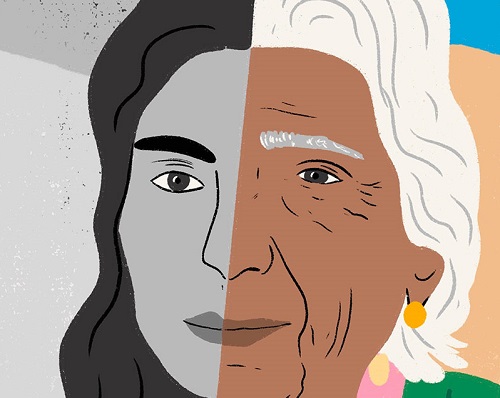If there is someone that makes me want to sit up and take notice, it is Dr Libby. An Internationally acclaimed nutritional biochemist, author and speaker, Dr Libby Weaver is one of Australasia’s leading nutritional biochemists, a seven-time number one bestselling author and an international speaker.
Dr Libby has a great knack for saying it how it is in an easy to understand manner while empowering and inspiring people to take charge of their health and happiness. Dr Libby’s three-pillar approach looks at the biochemical, nutritional and emotional reasons behind what might be driving the body to behave in a certain way. Enforcing the fact that a ‘blanket’ diet and exercise program is not the simple answer to feeling and looking great. I’m a huge fan and encourage you to read her books if you have not already done so!
Dr Libby shares with her 5 top tips for more energy

There seems to be an epidemic of tiredness amongst people today, what are the main drivers behind this?
The reasons are different for each and every one of us – but I think one of the main reasons is that we are taking on more and more, demanding more of ourselves mentally and physically than ever before. Many people struggle with restorative sleep, fill themselves with stimulants such as caffeine because they aren’t sleeping well and often surround themselves (often unintentionally) with people who drain their energy. But it’s more than that – there are so many biochemical and emotional processes at the heart of whether we feel energized or not and this is really what I want people to understand. For many of us it’s easier to hide behind “it’s work, it’s the kids, it’s winter etc” than to truly address the heart of the matter and it doesn’t have to be that way. The other part of this picture is that I see so many people who have created amazing lives – children, partners, work, study, travel… yet they can’t enjoy the life they’ve created because they are too exhausted. I want to help people live their lives with more energy so that they can enjoy what they’ve created.
You talk about energy in terms of deposits and withdrawals, can you tell us more about this?
If we think of the energy we have on a daily basis as a bank account it’s easier to think about what “adds” or “takes” away from our energy. Energy supplies us with the power to function, grow, heal and regenerate ourselves daily. We are designed, however, to supplement this original endowment of energy with what we generate from eating, breathing, sleeping, working, playing, learning and relationships. Each day we make withdrawals and deposits; we invest or deplete. And when the balance of the scales tips in the direction of us using more than we put back in, we begin to live in the red with the potential of falling further and further behind.
To keep the currency analogy going, we are then forced to dip into our savings. When we continuously withdraw from our savings account, alarm bells can begin to sound telling us that our survival is being challenged. These alarms present to us as symptoms in the body, often of the type that doesn’t initially lead us to stay home from work… so we soldier on and often do nothing about them.
You are a biochemist – what exactly is happening in our body when we feel so depleted of energy?
Some of the symptoms of dipping into our energy savings accounts include fatigue, low mood, anxious feelings, apathy, unrefreshed sleep or insomnia, brain fog, lowered resistance to infections, stiffness, digestive system problems, “unexplained” changes in body fat levels, and signs of rapid ageing. These are just some of the ways our body might choose to let us know that we are physically, mentally and/or emotionally exhausted.
The symptoms themselves don’t have a voice to let you know what they want you to do. It is up to us to decipher them. And when we are running on empty, our body does its best to let us know that it is time to slow down, rest, better support and enhance detoxification pathways, repair, replenish and restore. Yet too many people ignore this, throw another pill down, or write it off to “I must be getting old”.
I know reducing stimulants is one way to have more sustained energy. Are there any alternatives you recommend for coffee lovers?
Coffee actually does serve some people, I explain this in more detail in my book – but often it relates to how much is being consumed. Green tea is a wonderful alternative to coffee as it has an uplifting effect with a substance that helps to keep us calm. Plus, it’s a wonderful source of antioxidants so it really is a fantastic substitute or alternative.
What are “open loops” and how do they impact our energy?
We understand that our computer or smartphone slows down and burns more battery, the more programs we have open and they more things you are asking it to do. Twenty-three open tabs of web pages, spreadsheets, documents and presentations, the photo editing, movie playing, music, software updates… our mind can feel very much the same. The more things we have open and unresolved, the bigger the drain on our mind power and energy, from all of these open loops.
How many times across a day, a week, a month, a year, decades even, do tasks or situations open up, yet they are never resolved, finalised, or closed? How many emails do you read that you don’t immediately reply to, and they hang in your mind and add to your task load of what’s not yet done? It’s as if you walk around each day with so many tabs open – like websites sitting open on your computer screen – that you never feel like you’ve got it all handled. You never feel like you can rest. You can just imagine what that does to your energy!
What is the role of dopamine – the neurotransmitter – in our energy?
Dopamine is now seen as a core neurotransmitter to address symptoms such as poor energy in general, but particularly related to the lack of energy that can occur with a depressed mood. Science has shown that low dopamine levels are a major contributor to why people with low mood don’t feel like doing anything. People with fibromyalgia report similar findings.
In the opposite scenario, dopamine may be involved in addictive behaviours leading to, what has been described as “an attitude of compulsive perseverance”. If dopamine production is excessive and somewhat unregulated, people can find themselves feeling out of control in seeking thrilling stimulation – anything that will create more dopamine to sustain their heightened state. This might show up as sky-diving, drug-taking, aggression, or a host of other behaviours. Dopamine is a critical but often overlooked component of health, happiness and energy.
What are your personal practices for having an abundance of energy and vitality?
I have a morning ritual that I don’t compromise. I also schedule my downtime and prioritize it. That usually involves a gentle walk in nature. I know that I cannot best serve others and my mission if I don’t insure my battery is charged. A form of restorative yoga called Stillness Through Movement is absolute bliss for me and I feel completely revitalized after doing it. I know people think the word gratitude gets overused but I am truly grateful for life itself plus everything I have in my life – such as clean water and fresh air. An attitude of gratitude can be very energizing – as is having a clear purpose.
Where is the best place to start when making a health or wellness change?
All of the knowledge about creating a healthy lifestyle does little good until it leads to a change in daily behaviour, a change to what you do consistently. Research and my experience from working with people to support their health have shown me that when an individual connects the better decisions they make with improvements in their daily energy, they are more likely to make them a new habit. Connecting their choices with better daily energy does more for people than anything they might learn about poor choices increasing their risk for major diseases. It’s a huge reason why all of my health information is framed in the positive – it’s about what you can experience, what life can be like if you make these changes, rather than threats of what may happen if you don’t change
What are your top 5 tips for having more energy?
Work on closing what I call “open tabs”- these are tasks, emails or jobs that haven’t been resolved. It’s as if we walk around each day with so many tabs open in our brains – like tabs sitting open on your computer, or phone. It’s no wonder we feel drained or flattened.
- Incorporate more resistance training or muscle-building exercise. This helps to build lean muscle mass. More muscle means more energy-producing mitochondria in our cells – resulting in a higher metabolic rate, which assists with body fat management as well as energy production. Naturally, you gain better energy reserves as your glycogen (glucose stores) increase, as well.
- Explore your immune system function – whether this is your susceptibility to viruses or infections, glandular fever or simply hayfever, anything that triggers your immune system can be fatiguing. Getting to the heart of these reactions can replenish the energy that is currently being spent fighting these infections/reactions.
- Be conscious of how your perceptions influence your mood and energy state. Write a list of what makes you feel alive and energised, and what saps your energy – your “energy vampires.” Actively work on doing more of the things that make you feel energised while simultaneously reducing your energy vampires.
- Stop sitting on energy – many adults spend most of their waking hours sitting, with studies showing that some spend an enormous 11 hours per day on their bottoms. Those hours tend to be clocked up working at a desk job, commuting to and from work, watching television, or at the computer. Whatever the reason, research shows that too much sitting isn’t good for health or energy. Move every hour!



